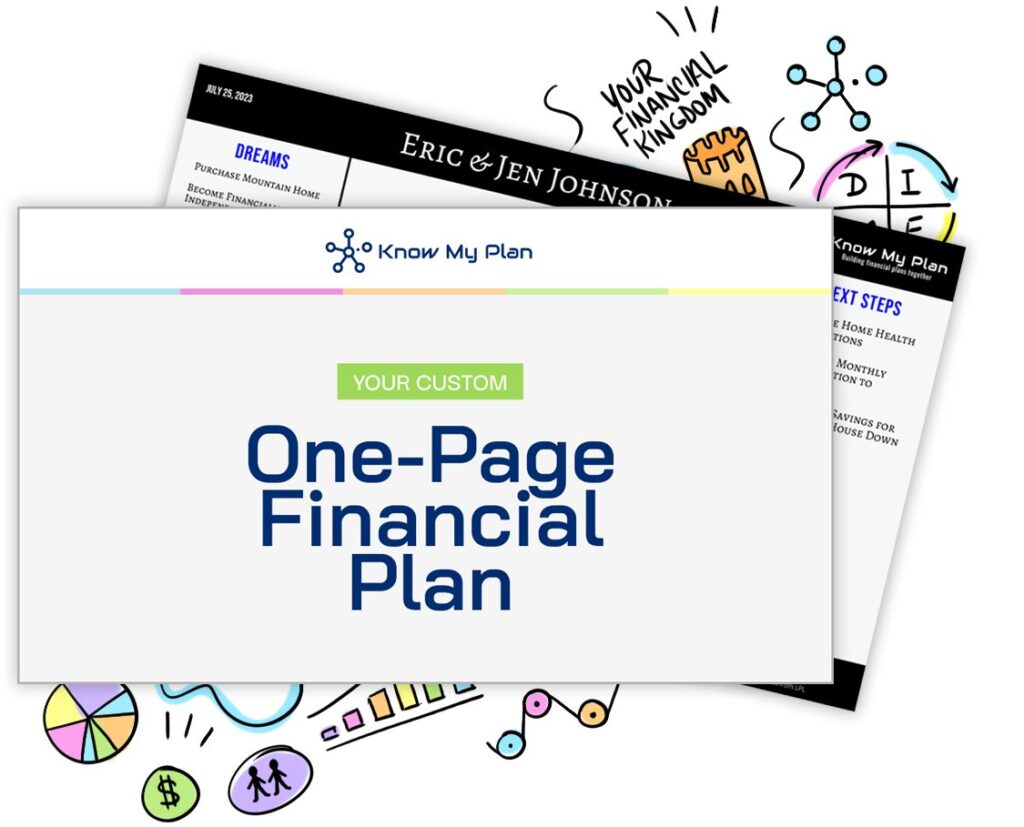Growing up, my dream was to be a junior college basketball coach, not a financial planner.
Funny though, I think back to a conversation I had with my grandfather in college, which inadvertently redirected my future and helped align my focus around helping people “understand money” as he put it.
After graduating in 2004, I began working as a drive through bank teller in Terre Haute, Indiana.
Over the years, as I climbed the ladder, I held many positions at the bank before ultimately becoming a Financial Planner.
Fast-forward to today, I couldn’t think of a better job (although I still LOVE getting deep into the weeds of junior college basketball)
Okay, so what’s financial planning?
According to the CERTIFIED FINANCIAL PLANNER™ Certification, “Financial planning involves looking at a client’s entire financial pictures and advising them on how to achieve their short- and long-term financial goals. From saving to education and planning for retirement to effectively managing taxes and insurance.”
Notice that financial planning is NOT investment management.
It is so much more!
What is a financial plan?
We believe that a financial plan is a living evergreen document that guides your decision-making process to pursue your family’s most cherished goals.
A financial plan is not a one-time event. It’s continuously updated as your unique situation and goals evolve over time.
We believe that having a financial plan is not about being right, but it is about being consistently less wrong.
We are going to make early actionable assumptions that are going to change:
- Rates of return
- Inflation
- Retirement dates
- What school your children will attend
Consider that you are a high-achieving professional that is married, three kids, and a golden-doodle.
You may or may not have a vivid picture of what you want your life to look like in 20 years and that’s perfectly okay.
For most people, financial planning is about creating future financial flexibility for whatever life has in store.
- You may have an opportunity to start or buy into a new business venture.
- You may want to take time off from work to travel the world.
- You may need to step away from work to care for an aging parent or a sick child.
- You may want / need… (who knows, and that’s the point)
Alright, enough already! – What Everyone Ought to Know About Financial Planning
- A financial plan should give you an overview of where you are today. Think of this as a State of the Union address, it clarifies where you are at in this moment of time (assets and liabilities). POINT A
- The plan should highlight where you want to go (goals – dreams – aspirations). POINT B
- The plan should provide guidance on how you get from where you are to where you want to go. NEXT STEPS
- We believe that the plan should clearly provide simple & concise next steps. No ambiguity. The more specific, the better.
- We believe that the plan should answer Six Core Questions for most families.
- What happens if I die prematurely?
- What happens if I get hurt and can’t work?
- How do I fund my children’s education?
- How do I fund my own retirement?
- What happens if I need care later in life?
- How do I effectively pass my assets to my loved ones?
- We believe to achieve financial planning success, the most important aspect of the plan is the ongoing monitoring of the plan. Our life and goals will evolve, the plan needs to as well. This is why we need to meet to update the plan on an annual basis to make course corrections as needed.
- We believe that your goals determine your plan, and your plan determines your portfolio. Your portfolio is nothing more than the funding mechanism to your portfolio.
- When it comes to investment management, we believe that simple is greater than complex. We advocate for a low-cost diversified portfolio.
- The time horizon for when we will need income from the portfolio will dictate how we recommend the underlying assets to be invested. We do not want to own long-term assts to fund a short-term need. In other words, if we need the money in the next five years, we do not want to allocate those dollars to ownership in companies (stocks), but to less volatile short-term fixed-income securities.
- Financial planning should be and can be fun. It is creating a plan to dream about what is possible for you and your family. It is an opportunity to collaborate with a professional to help you find ways to fund goals that you never thought possible.
At Know My Plan, we are passionate about planning. We like to provide a casual and laid-back environment that helps people feel comfortable exploring their future possibilities.
If you or someone you’re close to could use help aligning their finances and establishing a financial plan, please reach out to us, we’re accepting new clients and eager to help.
Cheers, Nic



